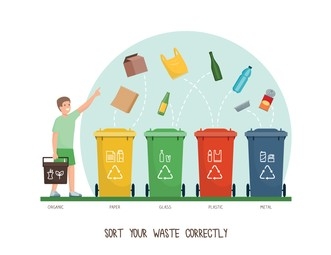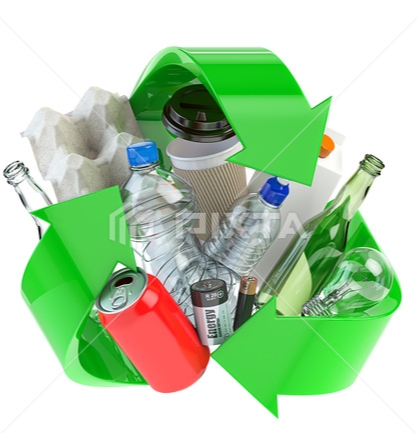Table of Content
- Know your local recycling guidelines
- Reduce and reuse
- Seperate recyclables properly
- Compost organic waste
- Recycle electronic waste responsibly
- Say no to single-use plastics
- Educate and raise awareness
- Support recycling initiatives and programs
- Recycle responsibly at work
- Stay informed and adapt
Recycling plays a crucial role in conserving resources, reducing waste, and minimizing the impact of human activities on the environment. By adopting sustainable practices and making recycling a part of our daily lives, we can contribute to a healthier and cleaner planet. In this article, we will explore ten practical and effective recycling tips that everyone can follow. These tips will not only help you reduce your ecological footprint but also inspire others to join the recycling movement.

Know your local recycling guidelines:
Every municipality has its own set of recycling rules and guidelines. Familiarize yourself with these guidelines to ensure you're recycling correctly. Understand which materials are accepted for recycling in your area and how they should be sorted. This knowledge will help you avoid contamination and make sure your efforts have a positive impact.
Reduce and reuse:
Recycling is essential, but reducing and reusing should be prioritized whenever possible. By minimizing our consumption and finding creative ways to reuse items, we can significantly reduce the amount of waste that ends up in landfills. Use reusable bags, opt for refillable water bottles, and repurpose items like glass jars or old clothes. By embracing the concept of "reduce and reuse," we can limit our environmental impact.
Separate recyclables properly:
Properly sorting recyclables is crucial to ensure they can be effectively processed and reused. Separate items such as paper, cardboard, plastic, glass, and metal into designated recycling bins. Remove any non-recyclable parts, like lids or food residue, before recycling. This simple step makes the recycling process more efficient and minimizes the chances of contamination.
Compost organic waste:
Organic waste, such as food scraps and yard trimmings, can be composted instead of being thrown away. Composting not only diverts waste from landfills but also creates nutrient-rich soil that can be used for gardening. Set up a compost bin or find a local composting facility to ensure your organic waste is put to good use.
Recycle electronic waste responsibly:
Electronic waste, or e-waste, contains valuable materials that can be recycled and reused. Instead of discarding old electronics, find proper e-waste recycling programs in your area. Many retailers and manufacturers offer collection points or take-back programs. By recycling electronic devices, you prevent hazardous materials from polluting the environment and promote the recovery of valuable resources.
Say no to single-use plastics:
Single-use plastics are a significant contributor to pollution and waste. Reduce your consumption of items like plastic bags, straws, and disposable cutlery. Opt for reusable alternatives such as cloth bags, stainless steel straws, and bamboo utensils. Making this small change in your daily habits can have a substantial positive impact on the environment.
Educate and raise awareness:
Spread the word about the importance of recycling and sustainable practices. Share your knowledge with family, friends, and colleagues. Engage in discussions and promote recycling initiatives in your community. Education and awareness are vital in inspiring others to join the recycling movement and adopt environmentally friendly habits.
Support recycling initiatives and programs:
Participate in local recycling programs and support initiatives that promote recycling and waste reduction. Attend recycling events, donate to environmental organizations, and advocate for improved recycling infrastructure in your area. By actively supporting these initiatives, you can contribute to the development of a more sustainable future.
Recycle responsibly at work:
Encourage recycling practices in your workplace by setting up designated recycling bins andspreading awareness among colleagues. Implement paperless policies, encourage the use of reusable cups and utensils, and promote the proper disposal of electronic waste. By extending your recycling efforts to the workplace, you can amplify your impact and inspire others to follow suit.
Stay informed and adapt:
Keep up-to-date with the latest advancements in recycling technologies and practices. Stay informed about new materials that can be recycled, innovative recycling methods, and emerging sustainability trends. Adapt your recycling habits accordingly to maximize your positive impact on the environment. By staying informed, you can make informed choices and continuously improve your recycling efforts.

Recycling is a simple yet powerful way to make a positive impact on the environment. By following these ten recycling tips, you can significantly reduce waste, conserve resources, and contribute to a cleaner and healthier planet. Remember to educate others, support recycling initiatives, and stay informed about advancements in recycling practices. By working together and making recycling a part of our daily lives, we can create a more sustainable future for generations to come. Start today and be the change our planet needs.


You must be logged in to post a comment.